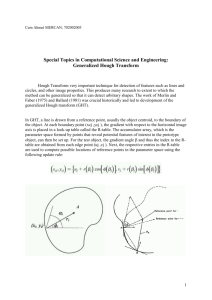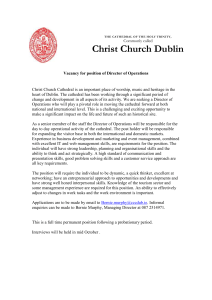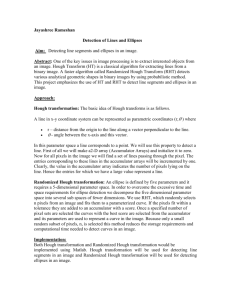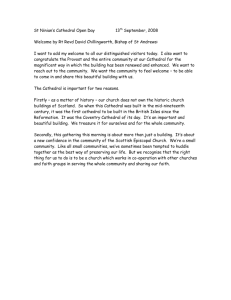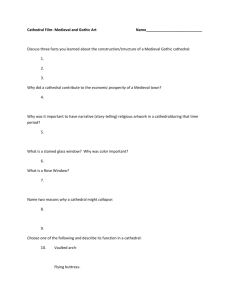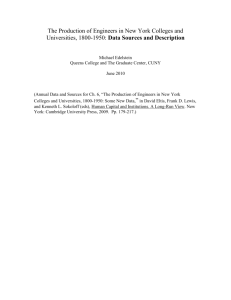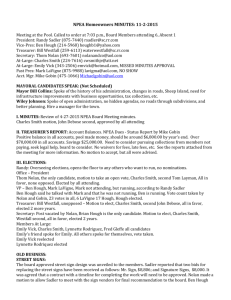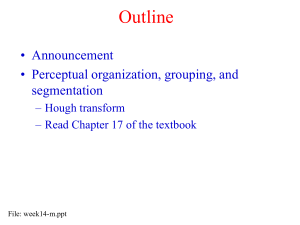missa-mirabilis-tabl..
advertisement
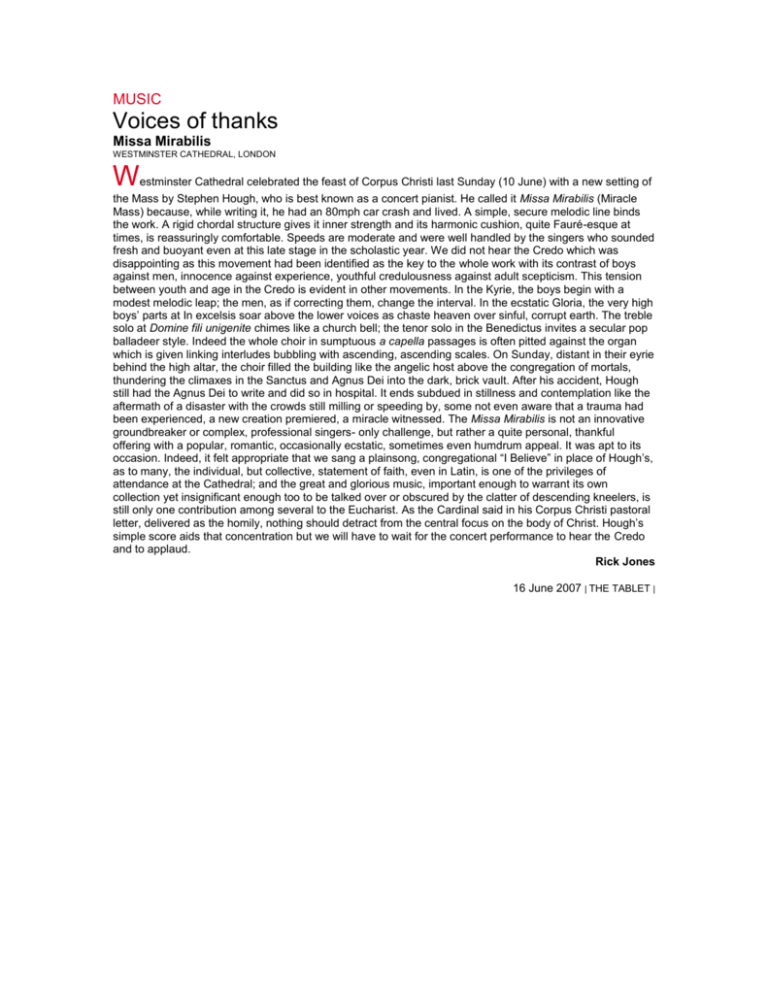
MUSIC Voices of thanks Missa Mirabilis WESTMINSTER CATHEDRAL, LONDON W estminster Cathedral celebrated the feast of Corpus Christi last Sunday (10 June) with a new setting of the Mass by Stephen Hough, who is best known as a concert pianist. He called it Missa Mirabilis (Miracle Mass) because, while writing it, he had an 80mph car crash and lived. A simple, secure melodic line binds the work. A rigid chordal structure gives it inner strength and its harmonic cushion, quite Fauré-esque at times, is reassuringly comfortable. Speeds are moderate and were well handled by the singers who sounded fresh and buoyant even at this late stage in the scholastic year. We did not hear the Credo which was disappointing as this movement had been identified as the key to the whole work with its contrast of boys against men, innocence against experience, youthful credulousness against adult scepticism. This tension between youth and age in the Credo is evident in other movements. In the Kyrie, the boys begin with a modest melodic leap; the men, as if correcting them, change the interval. In the ecstatic Gloria, the very high boys’ parts at In excelsis soar above the lower voices as chaste heaven over sinful, corrupt earth. The treble solo at Domine fili unigenite chimes like a church bell; the tenor solo in the Benedictus invites a secular pop balladeer style. Indeed the whole choir in sumptuous a capella passages is often pitted against the organ which is given linking interludes bubbling with ascending, ascending scales. On Sunday, distant in their eyrie behind the high altar, the choir filled the building like the angelic host above the congregation of mortals, thundering the climaxes in the Sanctus and Agnus Dei into the dark, brick vault. After his accident, Hough still had the Agnus Dei to write and did so in hospital. It ends subdued in stillness and contemplation like the aftermath of a disaster with the crowds still milling or speeding by, some not even aware that a trauma had been experienced, a new creation premiered, a miracle witnessed. The Missa Mirabilis is not an innovative groundbreaker or complex, professional singers- only challenge, but rather a quite personal, thankful offering with a popular, romantic, occasionally ecstatic, sometimes even humdrum appeal. It was apt to its occasion. Indeed, it felt appropriate that we sang a plainsong, congregational “I Believe” in place of Hough’s, as to many, the individual, but collective, statement of faith, even in Latin, is one of the privileges of attendance at the Cathedral; and the great and glorious music, important enough to warrant its own collection yet insignificant enough too to be talked over or obscured by the clatter of descending kneelers, is still only one contribution among several to the Eucharist. As the Cardinal said in his Corpus Christi pastoral letter, delivered as the homily, nothing should detract from the central focus on the body of Christ. Hough’s simple score aids that concentration but we will have to wait for the concert performance to hear the Credo and to applaud. Rick Jones 16 June 2007 | THE TABLET |

